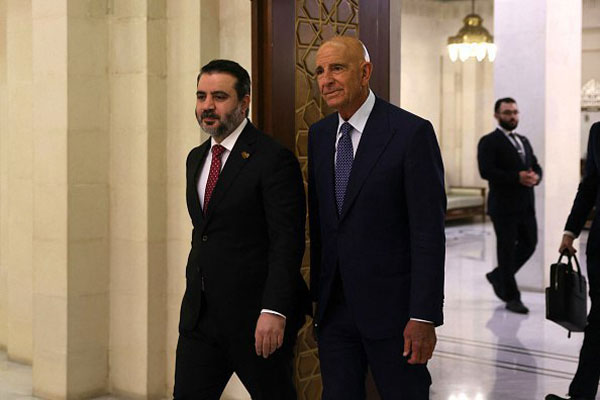Paris Talks Raise Questions About the Future of Southern Syria

The Coordination Office in the Syrian Foreign Ministry confirmed that the reports about a security agreement are "completely denied," despite international reports quoting "high-level Syrian sources" confirming that the agreement would be signed under American sponsorship. This contradiction is not new in Syrian diplomacy, but it comes in a sensitive context following a series of meetings between Syrian Foreign Minister Faisal Mekdad and Israeli officials in Paris and Baku.
The recent meetings focused on thorny issues such as stopping interference in Syrian affairs and a clear Syrian demand to end Israeli operations deep in Syria and stabilize the south, especially in the Sweida province, which is experiencing tensions and security issues.
And reactivating the 1974 agreement that stipulates the establishment of a demilitarized zone under international supervision.
The United States, which announced a ceasefire agreement in July, appears as a key mediator in this process. However, its role goes beyond mediation to attempting to reshape regional balances, especially after the fall of the Assad regime and the emergence of new forces in Syria.
Damascus faces a difficult dilemma on one hand, needing to regain control over its south and stop Israeli interventions.
On the other hand, it rejects any agreement that may be seen as a concession of sovereignty or normalization with the historical enemy.
Possible scenarios: a limited agreement focusing on reducing direct escalation and reactivating the 1974 agreement.
A comprehensive deal: including border demarcation and mutual security guarantees, but facing internal opposition in both countries.
Collapse of negotiations: and a return to military escalation, especially with ongoing tensions in Sweida.
The Syrian denial may be part of a negotiating tactic to obtain greater concessions from the Israeli side or to calm internal anger and regional opposition.
Syrian-Israeli talks are no longer a fantasy, but have become a reality imposed by geography and politics. However, the road to any agreement remains fraught with mines within Syria, where many factions reject any normalization with Israel, and within Israel, where hardliners see any withdrawal from the Golan as weakness. The Syrian denial today may just be a card in a larger game, where Damascus, Ankara, Washington, and Tel Aviv are trying to redraw the balance of power in the new Middle East.